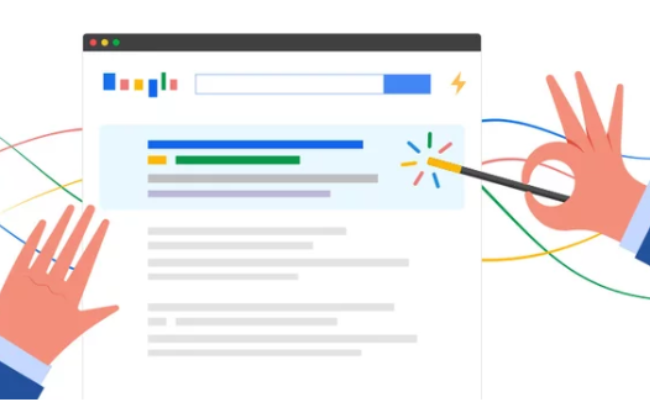5 Ways to Rank Keywords in Google Search Results
Even though you put out amazing content, the competition against other content online makes it difficult to outrank other content in the Search Engine Result Page (SERP) battle. There is a great chance search engines will find your content without using the proper keywords.
It isn’t easy to create the right meta description that can help your content rank better. Content writers often use high-search keywords during keyword research, but these keywords can be difficult to rank because the competition with these words is usually high.
If you are looking for how to rank for keywords on Google, it will help if you do a little more keyword research to get better-related keywords. Let’s look at five factors to have in mind when qualifying a keyword.
5 Tactics for Ranking Keywords in Google Search Results

If you are looking for how to rank for keywords on Google, it will help if you do a little more keyword research to get better-related keywords. Let’s look at five factors to have in mind when qualifying a keyword.
1. Match Your Search Engine Results to the Search Intent
Contents are ranked on Google based on their importance to the search intent. There’s a greater chance of Google finding your content if the related keywords closely match the intent of the search, as long as it isn’t a high-competition keyword. Also, remember that keywords with low search volume can be effective if they match users’ intent.
When using keywords to search on Google, does the keyword match the results on page one? The fewer results that match a user’s search intent, the higher your content’s chance of having a better SERP ranking.
It seems that long-tail keywords work better because they are more precise. For instance, if your keyword is “what is a chatbox and how does it work,” and articles on “best chatbox software” are shown from the search results, you may have cracked the keyword code.
Why? Because this many articles with this exact keyword are not appearing on your Google search. Instead, it’s showing bits of similar searches.
2. Check Your Domain Authority against Your Competitors
There is a tendency for Google to reference popular websites with more clout first (that is, websites with more authority and backlinks). Competing with sites with high authority is more difficult if your site’s domain authority (DA) score is low.
For this reason, you should check the DA score of all the websites on Google’s first page and compare them to yours. Domain authority is an important factor to think of when you are searching for the best keywords.
That is great news if your website has a higher DA than other websites on the first Google page. This means that your website is more popular, and there is a greater probability of outranking those other websites.
By introducing a website audit tool to your browser, you can view the DA of other websites. I use both Ahrefs and Moz extension bars for my browser.
Furthermore, as you work on your keywords and marketing strategy, you might create great content; however, having great content only is not enough. Your content has to be better than your competitors through search engine optimization (SEO).
Always check the current rankings of the particular keyword to ensure high rankings for your articles. Research articles regarding your keywords and see what your competitors are up to. Ensure your content has what theirs have and even more.
Domain Authority Matters
Furthermore, when considering competitors and domain authority, you can use this easy guide and develop higher-quality links to your webpage. You can achieve this in many ways.
Replicating competitor’s links, guest posting, pursuing unlinked mentions, skyscraper link building, and including keyword-rich anchor text.
There are a lot of link development plans to assist with this, and these are two options; include strong and valuable links to your webpage or blog post, and develop page-level backlinks.
In general, if your webpage needs improvement to get higher keyword rankings than your competitors, adding internal links is one quick way.
However, developing backlinks is most needed when there is a problem with your page authority. You can do both of them. This is the most difficult issue to solve because it takes some time.
Sometimes, it’s best to use an easier keyword if your DR is not up to the pages with a higher ranking than you. That being said, it’s still possible to pass the SERP by getting higher on-page optimization; therefore, you are either developing more external or internal backlinks to your webpage.
Suppose this is done consistently over a long period; your webpage will grow naturally on Google, which will, in turn, increase the ability of your website to rank against more competitive websites and multiple keywords on Google.
Another thing to consider is making a linkable asset to grow your Google ranking; you can then use your internal links to lead the resulting authority straight to the pages you want improved to gain higher keyword rankings.
3. Write Articles that will Overtake Forum Sites
There is a better chance that Google will first reference articles if forum sites such as Reddit, Facebook, Quora, and Twitter show from your keyword search. This means that Google finds it difficult to get good quality and relevant articles on the topic.
You can use this great opportunity to create content on the topic that has the potential to get on Google’s top page.
4. Choose a Keyword that isn’t Related to Commercial Intent
When you create content with informational pieces and e-commerce sites displayed from the keyword search, this could happen for two reasons – and you could leverage one of these reasons to score higher rankings on Google.
First, it could be that the user intent mark may be missing from your keyword. You can try to adjust your keywords and see if this changes the result. Otherwise, perhaps the relevant articles on this topic aren’t found on Google.
There is a greater chance for Google to rank informative articles above most commercial articles if there isn’t any relationship between your keyword and commercial intent. When discussing keywords with high commercial intent, it’s advised not to generalize anything.
How can you then identify these keywords? There are different ways of identifying keywords with high commercial intent, regardless of your desired business type or conversion result. You can use the workstream free keyword tool to begin your research.
This is done by simply entering the target keyword in the search bar and adding your location and industry, and then you will get results with top-of-page bids, monthly search rate, and competition. Note that including your location and industry in your keyword research is optional.
Unsurprisingly, Google Ads Keyword Planner is among the best methods of getting keywords with commercial intent. You can access this from the settings tab, and then you will find “discover new keywords.” after this, you select your products or services on the search tab. It is as easy as it looks, and you should try this out.
5. Write Longer, More Valuable Articles
You can make your content get a higher google ranking if the keyword search shows shorter content of fewer than 800 words on Google’s top page. These are the reasons:
- More content is more understandable and indexed appropriately on Google. This increases the probability of crawlers on Google finding your content and matching it correctly to a search query.
- Recent research on 11.8 million search results on Google shows that the average article that ranks in the top 10 positions has an average content of 1,477 words.
- Valuable content is always rewarded on Google. Longer and more in-depth content with rich information is thought to have more value for readers.
- In longer articles, you can target multiple keywords to increase the chances of your article being found by search engines.
- More backlinks are attracted to properly researched articles, and more backlinks grow the domain authority.
If the content you put up on Google has valuable information and it’s worth reading, there’s a good chance that visitors will spend more time on your website and will frequently return to it. This is very important when searchers find your website using Google search results.
This is because the time spent on your website tells Google that readers have found what they are searching for; therefore, Google will adjust its search ranking in the future.
Conclusion
According to recent research, over 90% of feedback showed that people normally use only the first page from a Google result. Users who don’t get the desired result from the first page prefer to search again rather than check the next page.
Including the right keywords in your content can provide a coveted ranking on Google’s top page. This is the reason it matters when choosing keywords. Using the wrong keywords can get your content down to page two – little differences with great consequences.
Remember that it is essential to write a good page title while optimizing your webpage for Google. This is because users first see your title tag in their search results, and Google uses that to identify the page topic.
It is also important to avoid keyword stuffing in a bid to manipulate your webpage ranking, as this would only yield negative outcomes. If you’re interested to learn more about how to rank for keywords on Google, sign up for a free consultation with LeadAdvisors.





